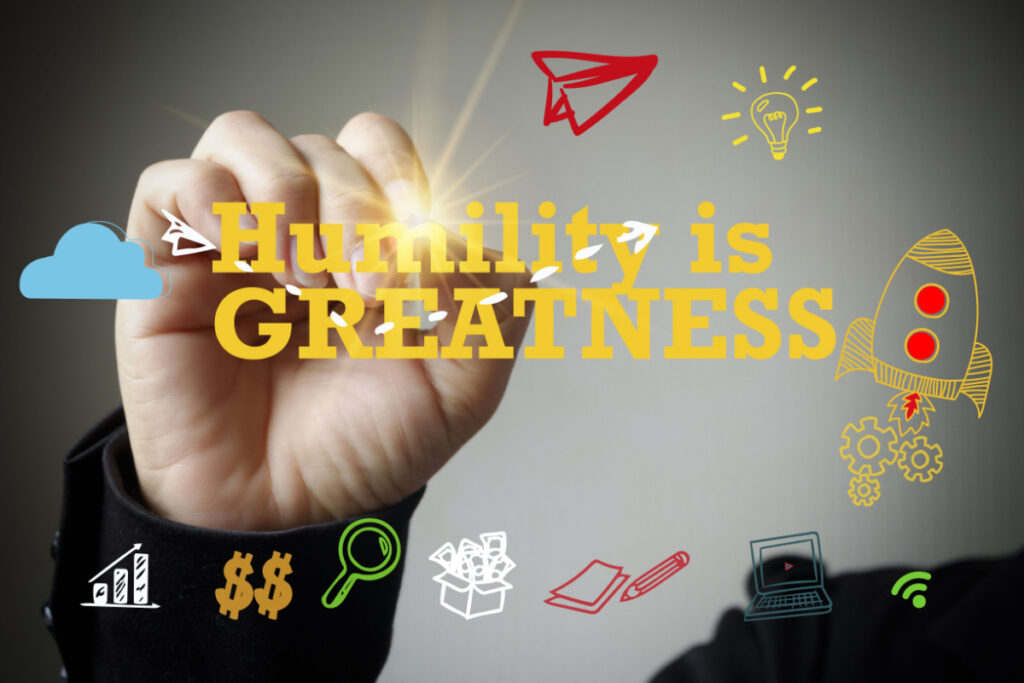[This essay was produced with support from the Greater Good Science Center and the John Templeton Foundation as part of an initiative expanding awareness of the science of intellectual humility.]
To refer briefly to a foundational piece of wisdom literature, the first Epistle to the Corinthians states that “knowledge puffs up, but love edifies.” Though anti-intellectualism may seem to be on the rise it is perhaps fair to say that we live in a time where facts and information are seen by many to be the answer to problems of severe social and political division. The truth however is more nuanced. Affective polarization is not a phenomenon of misinformation (though this may be both a consequence and a contributing factor) but rather a collapse of trust between opposing groups, as well as between the public and its institutions. Braver Angels seeks to rebuild trust between Americans in the context of politics, and between the American people and their vital civic institutions. Yet even as this is true there can be no such trust in the realm of political life without intellectual engagement. The question for Braver Angels therefore becomes how do we advance the work of rebuilding trust in the context of intellectual and ideological debate and discussion? The virtue of intellectual humility is foundational to our capacity to accomplish this. How intellectual humility expresses itself across the tapestry of Braver Angels activities and grassroots infrastructure building is the focus of this essay.
Braver Angels is not just an organization, it is a mission driven community. It is generally bound by both a love of country and an essential goodwill towards the people of this country (whether they are people we agree with or not). As such, Braver Angels has a creed. That creed is illustrated in what we call the Braver Angels Way:
We state our views freely and fully, without fear.
We treat people who disagree with us with honesty, dignity and respect.
We welcome opportunities to engage those with whom we disagree.
We believe all of us have blind spots and none of us are not worth talking to.
We seek to disagree accurately, avoiding exaggeration and stereotypes.
We look for common ground where it exists and, if possible, find ways to work together.
We believe that, in disagreements, both sides share and learn.
In Braver Angels, neither side is teaching the other or giving feedback on how to think or say things differently.
Within the text of the Braver Angels Way one finds statements that are meaningless if they are not founded upon a commitment to intellectual humility.
“We believe all of us have blind spots and none of us are not worth talking to.” This statement is a reflection upon our inability to know, or be right about, everything that matters in both politics and life.
“We seek to disagree accurately, avoiding exaggeration and stereotypes.” In this we acknowledge that our own prejudices, the biases of our own emotions, are no fit substitutes for truth (whether these embellished opinions are about issues or people).
“We believe that, in disagreements, both sides share and learn.” This statement asserts that, not only do we know ourselves to be wrong however often merely by virtue of being human, but that those with whom we find ourselves at odds do in fact have things to teach us that we can learn from. It contains a faith in the value of other perspectives that de-centers one’s own opinion in a way that is only possible through an internalization of intellectual humility.
Upon these philosophical foundations Braver Angels community supports and implements a wide range of events, programs, and content creation that cultivates goodwill, trust and understanding across our political divides between individuals and within communities and institutions. While these offerings are dynamic and wide spreading, Braver Angels program work began with a single workshop design. Rooted in principles of family therapy, our “Red/Blue” workshop does not center argument or debate, but rather the elevation of each side’s life experiences in terms of why they see politics the way that they do.
Deference to the validity of “lived” experience is built into the character of Braver Angels workshops. Our workshop offerings have now expanded into a roster of seven group workshops and several other one-to-one scripted conversational offerings focused on differences as varying as race, geography, generation as well as political ideology.
Bill Doherty (noted family therapist, professor of psychology, Braver Angels co-founder and architect of Braver Angels workshops) describes the role of intellectual humility in workshop culture and design in this way:
“Humility about the weaknesses and limitations of one’s own political side is at the heart of Braver Angels workshops. For example, in our red/blue workshop, we pair the question ‘Why are your side’s values and policies good for the country’ with a follow up question, ‘What are your reservations or concerns about your own side?’”
Reflection upon our individual and group capacity for error and imperfection is a consistent feature of Braver Angels’ programmatic culture. This is impossible without a commitment to intellectual humility.
Braver Angels work links personal experiences to narrative, debate and direct civic engagement. In the messaging of Braver Angels there is a focus on challenging Americans to empathize with both sides of an argument (and the experiences that give rise to such arguments) that loudly implies a foundational commitment to intellectual humility.
Braver Angels Instagram page, for example, is replete with quotations from figures in history exhorting us to this effect:
“Unity, not uniformity, must be our aim. We attain unity only through variety. Differences must be integrated, not annihilated, not absorbed.” – Mary Parker Follett (philosopher).
“The test of a first-rate intellect is that ability to hold two opposing ideas in your head at the same time, and still retain the ability to function.” – F. Scott Fitzgerald
In an essay published as part of a special issue of Deseret Magazine this author, in his role as Braver Angels National Ambassador, talks about his own background as a mixed-race American with an African-American mother from urban Los Angeles who is a democrat and a white father from the south who is a Republican, the challenge of polarization, and the lessons drawn from a life spent learning from the divisions of a polarized family:
“The antidote was in understanding. I carried this attitude with me throughout life right into politics. So in an age where Democrats and Republicans view each other as the enemy, I cannot help but see them as merely Mom and Dad.”
Intellectual humility may come more easily in contexts where there is affection between parties to a disagreement. It is for this reason that goodwill at least also stands as a foundational value of the work of Braver Angels. Yet one of the fruits of such goodwill is intellectual humility. When we have affection for one another it is easier to imagine that we each may have some valid perspective to contribute to a conversation.
That said, in the real world of politics stakes are high, competition is fierce, and material interests are often zero-sum. Politics is not necessarily a natural place to make friends. We must be able to advocate for and defend our points of view on living questions whose consequences matter. Yet even in this truth matters, and so too does our ultimate capacity to trust one another’s intentions across lines of political ideology and “tribal” affiliation. The constructive tension we at Braver Angels seek to restore to the American understanding of civic life is the tension between fierce advocacy on the one hand and winning the interpersonal trust and goodwill of the opposition on the other. Even in the throes of debate, democracy at its best rests on the presupposition that even in conflict we are engaged in a dialectic that moves us collectively towards a greater appreciation of truth. Even in debate then, bonds of civic trust and our collective pursuit of truth are strengthened through intellectual humility.
Braver Angels work extends deeply into the realms of both popular political debate on the one hand and professional political polemics as exist between candidates and elected officials on the other.
The Braver Angels Debates model is predicated upon a commitment to community building and the collective pursuit of truth that is only possible through a commitment to intellectual humility. Based upon the debate format of the Yale Student Union, Braver Angels Debates is a parliamentary process designed to minimize contests of personality while maximizing engagement with ideas and experience. All people in a given room have the opportunity to volunteer to give a speech in support or defense of a given resolution (be it ‘resolved: we should defund the police’ or ‘resolved: America should build a wall along its southern border’). This is itself a marker of intellectual humility in design because this ironclad commitment to inclusion rests in part upon the presupposition that there is something to be learned from everyone in a given discussion, whether we are hearing from a university professor or the janitor. Questioners, when responding to speeches given on the other side, are not allowed to address the speakers directly or by name but rather are required to address their question to the chairperson. (This again keeps the focus on ideas, not on personalities.) Most strikingly, perhaps, participants in these debates are encouraged not only to marshal logic and data in support of their arguments, but to also be candid with respect to doubts they may have about their own arguments, and to be honest about the ways in which they think they might be wrong. In fact participants who begin a debate on one side of a debate are allowed to switch sides during the course of it if they hear something from the opposition that sways their view.
April Lawson, the architect of the Braver Angels Debate format, describes the spirit of the program this way:
“What we think about when we think about Braver Angels Debates is the spirit of it, which is a collective search for truth. So what that means is that we invite everybody into the room to share what they particularly have to say about a topic. They don’t have to be the best spoken person in the world, they don’t have to have lots of statistics. But we do ask that they say what they actually believe.”
Braver Politics, on the other hand, is an effort encompassing a suite of programs aimed at directly impacting the culture of political campaigning in American elections. It includes, among other items, its own debate model specified to candidates and electeds in a manners that focuses in on issues of genuine concern to constituents while discouraging the sort of ad hominem and personal attacks that too often corrupt the competition of ideas in electoral contests. There is a degree to which our overarching Braver Politics initiative can be understood as a direct effort at injecting intellectual humility into electoral politics.
Braver Politics director Elizabeth Doll analyzes the relationship between Braver Politics and intellectual humility in this way:
“One of the most important qualities a public official can have is intellectual humility. Whether supporting and pursuing the best policies or building relationships with constituents, effective work requires a consistent willingness to change your mind (even when you think you’re right), being sure that there are things you can still learn (even – maybe especially – when you already know a lot.)”
Intellectual humility is both a value and a disposition. It reflects an understanding those who have it possess about how we may best channel uncertainty into wisdom. In this it stands as an epistemological conviction. Yet even more so intellectual humility connotes a way of being in the world. Embodied as a virtue it animates the way in which we relate to one another in ways that open up possibilities previously closed to us.
Monica Guzman, Braver Angels senior fellow for public discourse and author of I Never Thought of it That Way: How to have Fearlessly Curious Conversations in Dangerously Divided Times, has established curiosity as a virtue within the culture of Braver Angels and indeed across the bridging space and beyond. Curiosity allows us to open up space for knowing others and in turn being known be them, diffusing the anxiety that may surround our differences in favor of a clarifying humanization. Yet curiosity as a virtue does not travel far outside the company of intellectual humility. About the relationship between the two Monica says the following:
“Curiosity is a craving for information, for what we don’t understand that we want to understand. Intellectual humility is the capacity to receive information, to hold a posture that lets us stay open to new ideas, even and especially if they challenge us. Curiosity is a very narrow thing without intellectual humility. IH is what turns the tunnels it travels through in search of information into vast landscapes. They strengthen each other, need each other, and work together.”
In the work of Braver Angels, and indeed a larger community of organizations, scholars and practitioners brought together by the work of the Greater Good Science Center and the John Templeton Foundation, we see evidence of a shift towards a renewed appreciation of intellectual humility as both virtue and subject matter in a dynamic landscape of innovators dedicated to constructive social change. This is a trend that must continue if the spirit of American pluralism is ever to overcome the polarization that undermines the foundation of America democracy.





1 thought on “Intellectual Humility and Braver Angels”
I appreciate this article and repeated purpose of BA very much.Thank you! Joan Schultz Newberg,Oregon